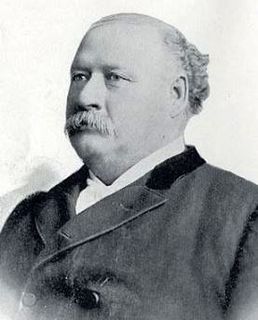A Quote by Martin Luther
This is the reason why our Theology is certain: because it seizes us from ourselves and places us outside ourselves.
Related Quotes
We see ourselves in other people’s eyes. It’s the nature of the human race; we are a species of reflection, hungry for it in every facet of our existence. Maybe that’s why vampires seem so monstrous to us—they cast no reflection. Parents, if they’re good ones, reflect the wonder of our existence and the success we can become. Friends, well chosen, show us pretty pictures of ourselves, and encourage us to grow into them. The Beast shows us the very worst in ourselves and makes us know it’s true .
Each one of us needs time and space for recollection, meditation and calmness.... Thanks be to God that this is so! In fact, this need tells us that we are not made for work alone, but also to think, to reflect or even simply to follow with our minds and our hearts a tale, a story in which to immerse ourselves, in a certain sense to lose ourselves to find ourselves subsequently enriched.
Some of us are darkness lovers. We do not dislike the early and late daylight of June, but we cherish the increasing dark of November, which we wrap around ourselves in the prosperous warmth of wood stove, oil and electric blanket. Inside our warmth we fold ourselves, partly tuber, partly bear, in the dark and its cold - around us, outside us, safely away from us. We tuck ourselves up in the comfort of cold's opposite, warming ourslves by thought of the cold, lighting ourselves by darkness's idea.
Though we are commanded to 'wash ourselves', to 'cleanse ourselves from sins', to 'purge ourselves from all our iniquities', yet to imagine that we can do these things by our own efforts is to trample on the cross and grace of Jesus Christ. Whatever God works in us by his grace, he commands us to do as our duty. God works all in us and by us.
Demons frighten us because we set ourselves up to be frightened. We are overly attached to our reputations and possessions. When we love and desire what we should be rejecting, we are in conflict with our true selves. That's when the negative energies catch us and use our weapons against us. Instead of taking up what we have to defend ourselves, we put our swords in the hands of our enemies and make them attack us.
It is difficult to see ourselves as we are. Sometimes we are fortunate enough to have good friends, lovers or others who will do us the good service of telling us the truth about ourselves. When we don't, we can so easily delude ourselves, lose a sense of truth about ourselves, and our conscience loses power and purpose. Mostly, we tell ourselves what we would like to hear. We lose our way.
[Grace] is given not to make us something other than ourselves but to make us radically ourselves. Grace is given not to implant in us a foreign wisdom but to make us alive to the wisdom that was born with us in our mother?s womb. Grace is given not to lead us into another identity but to reconnect us to the beauty of our deepest identity. And grace is given not that we might find some exterior source of strength but that we might be established again in the deep inner security of our being and in learning to lose ourselves in love for one another to truly find ourselves.








































